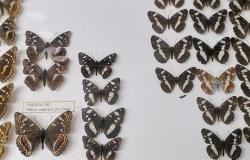
“Halal chicken,” asks Ersin Kiris from the program Inspection service of value‘what kind of chicken is that?’
“Well, that’s just chicken, but blessed with a prayer,” answers Albert Heijn employee Wanda, apparently from Rotterdam.
There is a bit more to it. I will spare you the gory details, but the ritual slaughter must be carried out by a professing Muslim. And the animals must have had a good and dignified life, right? That should be the case, says a Turkish-Dutch meat products producer, but yes, rising costs, decreasing purchasing power. In short: no rooster crows about it. And certainly not a supermarket.
Since January 1, 2023, Dutch supermarkets have only sold chicken with at least one Better Life star, an animal welfare quality mark. Halal chicken appears to be the exception, the consumer program discovers after a visit to a chicken farm. As soon as it has a halal quality mark, the supermarket no longer looks at animal welfare, says farmer Vogel among the tightly packed chicks.
The halal quality mark itself does not always appear to be kosher. What is considered halal appears to differ per issuing agency and is not at all transparent to the consumer. There is no control whatsoever, anyone can start a halal quality mark company. The Contact Body for Muslims and Government says it is working on a solution. As long as that lasts, halal chicken is usually boiled chicken.
The third episode offered even more to think about Food for thought, about the origins of our food, in which photographer and cameraman Kadir van Lohuizen and director Doke Romeijn are in Kenya. Also known as: ‘the vegetable garden of Europe’. That sounds more romantic than it is. Giant fields full of green beans, bok choy, broccoli. And also gigantic halls where the vegetables are processed by local employees. Daily wage of a picker: 2 to 3 euros; the retail price of a container of pre-cut mango (by a Kenyan).
Van Lohuizen and Romeijn unequivocally, without raising a finger, show the downside of the impressive scale on which food is produced in Kenya for the world market, while there is a food shortage in Kenya itself. Keeping the food is not an option, they need the money.
There are also solutions. On a small scale, but still. For food waste, for example, because in addition to mango cubes, in Europe we also like large peppers with an identical shape. We don’t want unusual peppers. A start-up buys the ‘failed’ vegetables and distributes them in slums.
There is also a major shortage of fish, partly due to overfishing. Kenyans depend on Chinese farmed tilapia, ironically an African fish. Yet more and more tilapia are farmed in Lake Vitoria. Twelve thousand kilos per year, says an entrepreneur. It is for the local market. Literally: market women buy the tilapia, fry the fish until golden brown and sell it. Hyperlocal. But also tastier, sweeter than the Chinese, says a market woman, and therefore fresh. So fresh that it is simply sold in yesterday’s newspaper.
Tags: Albert Heijn employee halal chicken chicken blessed prayer
-




